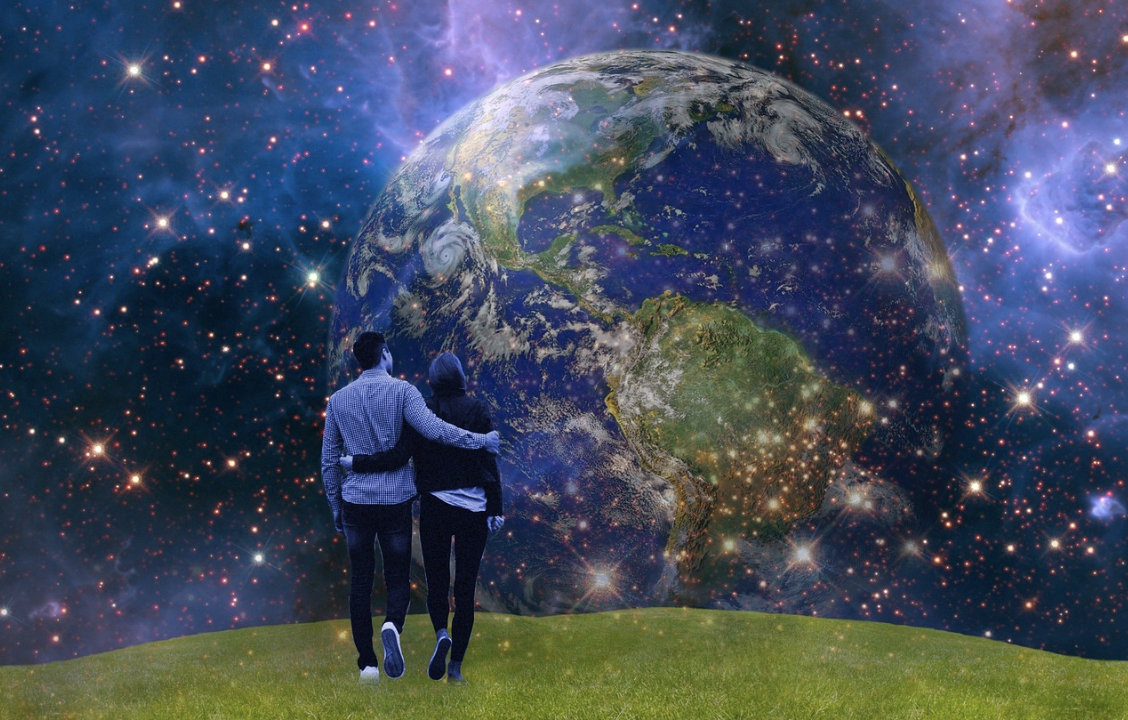Regenerative Lifestyles: Collaborating with Gaia
Biological evolution is often seen through a purely scientific lens but at the root it is actually a creative and collaborative process. From microorganisms to plants to complex systems like the human brain, biology is always in dialogue with its' environment. The Gaia Hypothesis, first proposed by James Lovelock, is the idea that our planet as a whole is a self-regulating organism or being that contributes to maintaining the optimal conditions needed for life. We impact our environment and our environment shapes us. By observing and learning from this we can adapt to live in ways that are more harmonious and optimal for our life experience. A regenerative lifestyle is one where we consciously participate in the living systems that we are part of.
Conscious Evolution is a Participatory Sport: We spend most of our time focused on immediate self interests like food, shelter, entertainment, and our families without reflecting on the larger picture. Have you ever considered that your life is a co-evolution with your natural environment? This requires an expanded view of the self which is simultaneously empowering and humbling.
Thriving Organisms and Natural Systems Know How to Regenerate: Imagine if your immune system did not exist. What if every cut, scrape or bruise you got as a child was still with you as an adult? Chances are that you might not even make it to become an adult. The immune system is the act of cells regenerating so that we can heal. The Regenerative Movement started with agriculture but is now a concept that we can apply to all sorts of human systems.
A Shift in Consciousness: The Biology of Belief: Unleashing the Power of Consciousness, Matter & Miracles by Bruce Lipton is a great starting point for understanding how our inner ecology and beliefs shape our world from the inside-outward. In a previous article, Ending the Conquest of Nature we explored some of the historical roots to these damaging belief systems. It is clear that we are on a journey from darkness into light when we can shift from destructive mindsets to more creative and collaborative ways of viewing our place in the universe.

Environmentalism and Humans as Stewards: Oftentimes environmental activists will discuss our role as humans in terms of the negative impact we are having on natural systems. Though they ultimately mean well they would provide a much better service by discussing ways that we can make positive or regenerative impact on our environment. Many environmentalists harbor an unspoken self-hatred for humans and what we have done to the planet. We have these extremes playing out – we have those who think meditation/prayer will solve the world’s problems, some angrily take to the streets demanding radical political change, and others are in complete denial of our role as stewards.
All of this changes when we begin to see ourselves as an integral part of the interconnected web of life on the planet. Something as simple as composting your food scraps has a huge positive impact. Purchasing organic food, using less disposable packaging, bringing a reusable bag to the grocery store, planting a tree, growing a garden and other simple practices will enhance your quality of life while benefiting the environment. If you are curious about more ways to live a sustainable and regenerative lifestyle check out this article, How to Become More Self-Reliant and Sustainable Locally.
Social Ecology: Our emotional states are influenced by our environment yet it is symbiotic because the way we feel often influences the way we treat everything surrounding us. Random acts of kindness contribute to a larger sense of being loved, supported, and nurtured in this world. Self-care, eating the right food, feeding your brain with uplifting information, doing yoga, going on hikes, relaxing and other daily practices will put you in the optimum place internally to interact with your environment in healthy ways. If we all embraced these beliefs and practiced them, how might that influence the environment around us?
We are Not Alone: It is inspiring to know that there are many people all over the planet waking up to these ideas and doing their part to enhance the web of life. There is a term created by writer Rob Brezsny called, ‘Pronoia’. It is the opposite of paranoia, and refers to the sneaking suspicion that the universe is secretly conspiring to help you. We now know that billions of microorganisms, thousands of generations of ancestors, and a global web of biological collaboration has conspired so that we can live, eat, and breathe. What a beautiful gift and blessing it is to be part of this web of life!
Many Layers of Collaboration: We are currently engaged in a global problem-solving experiment as we are faced with many hurdles. Understanding how we got here is important, but exploring ways to change the internal beliefs and external lifestyles that have contributed to these problems is paramount to our evolution. This emergent process can be messy at times, it can also be inspiring and fun.
Consider creative ways that you can adopt some of these ideas and practices to benefit your life and the life of those around you. We have the capacity to be regenerative or destructive with our beliefs and actions. This life is a collaborative process, what will you create?
*Article written by Jacob Devaney (co-founder of UNIFY) and originally appeared on Culture Collective*
